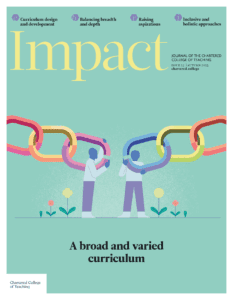AMY HOCKEY, SCIENCE LEAD AND SEND TEACHER, SPECIAL SCHOOL, MIDLANDS, UK
DONNA DAWKINS, PROFESSOR IN SECONDARY SCIENCE (BIOLOGY) TEACHER EDUCATION & PROFESSIONAL EDUCATION DEVELOPMENT, UNIVERSITY OF BIRMINGHAM, UK
Introduction
This practitioner research highlights the scientific and wider skills developed through an inquiry-based science curriculum for students with moderate and severe learning difficulties. The case study school used the British Science Association CREST Awards (BSA, 2018), which employ an inquiry-based approach to science learning and the development of scientific literacy. This research explores student and teacher perspectives and considers the impact on student outcomes for both science subject knowledge and life skills for students with special educational needs and disabilities (SEND).
Science curriculum provision in a special school
All students in England and Wales have an entitlement to the National Curriculum. The SEND code of practice (DfE and DHSC
Join us or sign in now to view the rest of this page
You're viewing this site as a guest, which only allows you to view a limited amount of content.
To view this page and get access to all our resources, join the Chartered College of Teaching (it's free for trainee teachers and half price for ECTs) or log in if you're already a member.











